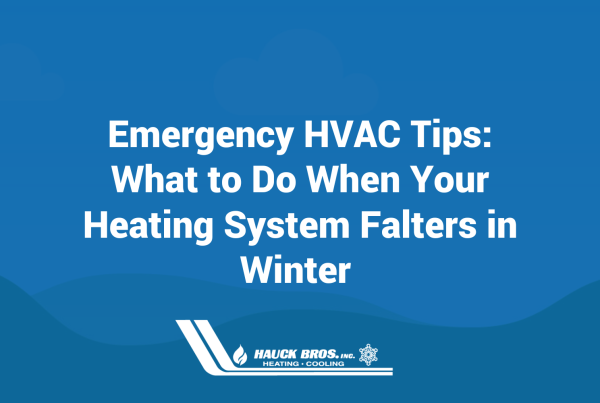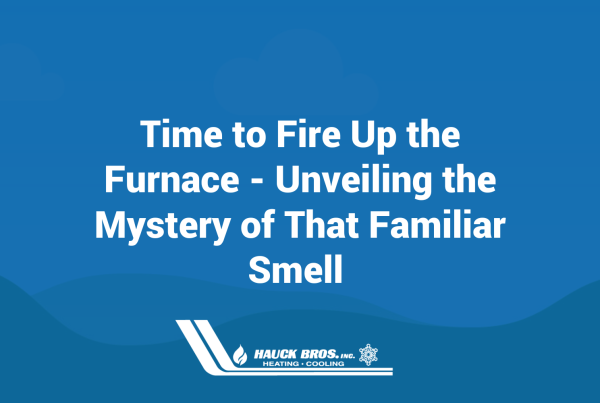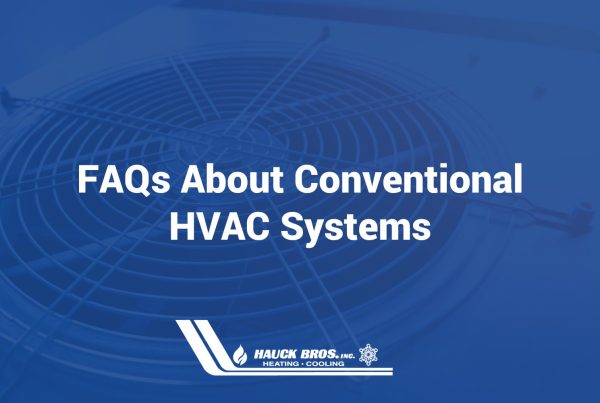
As the cooler months of fall settle in and we prepare our homes for winter, it’s common to close windows and doors to keep the warmth in. But while sealing up your home for the colder weather can improve energy efficiency, it can also trap pollutants and allergens inside. Fall is the perfect time to focus on improving your indoor air quality (IAQ) before winter hits, ensuring a healthy and comfortable environment for you and your family.
Why Indoor Air Quality Matters in Fall
Indoor air quality can impact your health, comfort, and even the efficiency of your HVAC system. When homes are tightly sealed for fall and winter, the reduced ventilation can cause a buildup of indoor pollutants like dust, pet dander, pollen, mold spores, and even volatile organic compounds (VOCs) from household products. This can lead to respiratory problems, allergies, and generally lower air quality inside your home.
In fact, according to the Environmental Protection Agency (EPA), indoor air can often be two to five times more polluted than outdoor air, making it especially important to focus on IAQ as we spend more time indoors during the colder months.
What Are the Signs of Poor Indoor Air Quality?
Poor indoor air quality can sometimes go unnoticed until symptoms start to appear. Common signs that your home may have poor indoor air quality include:
- Increased allergy or asthma symptoms:
Sneezing, coughing, and itchy eyes may be more frequent when pollutants like dust, mold, or pet dander are trapped inside your home. - Excessive dust buildup:
If you notice dust accumulating on surfaces even after frequent cleaning, it could indicate poor air filtration. - Persistent odors:
Musty or stale smells, especially those that don’t go away after cleaning, can be a sign of poor ventilation and indoor air quality issues. - Humidity problems:
If your home feels damp or dry, it could mean that your humidity levels are off balance, which can affect air quality and comfort. - Frequent headaches or fatigue:
Poor indoor air quality can sometimes cause symptoms like headaches, dizziness, or fatigue, particularly if harmful chemicals or VOCs are present.
If you notice any of these signs, it’s important to take steps to improve your indoor air quality, starting with a proper inspection of your HVAC system.
How to Improve Indoor Air Quality in Fall
- Upgrade Your Air Filtration System:
One of the best ways to improve indoor air quality during fall is to invest in a high-efficiency air filtration system. Air filters in your HVAC system play a crucial role in capturing airborne particles and pollutants before they circulate through your home. At Hauck Bros., we offer advanced air filtration solutions that can capture up to 99% of airborne particles, including dust, pollen, and mold spores. Consider upgrading to a system with a higher MERV (Minimum Efficiency Reporting Value) rating for better filtration and cleaner indoor air. - Schedule Regular HVAC Maintenance:
Your HVAC system plays a significant role in maintaining indoor air quality. Regular maintenance, such as cleaning or replacing air filters, checking ducts for leaks, and ensuring the system is free from mold or dust buildup, is essential. Dirty air filters and clogged ducts can not only reduce your system’s efficiency but also recirculate pollutants throughout your home. Make sure you’re changing your air filters frequently during peak usage seasons like fall and winter. - Install a Whole-Home Air Purifier:
For homes that need extra air quality protection, consider installing a whole-home air purifier. These systems work alongside your HVAC unit to actively remove pollutants, bacteria, and viruses from the air. Air purifiers are an excellent addition to homes with allergy sufferers or anyone looking to improve the overall air quality indoors. - Control Humidity Levels:
Fall often brings fluctuating humidity levels. Too much moisture can encourage mold growth, while too little can lead to dry air that irritates your throat and skin. Maintaining balanced humidity levels—between 30-50%—can help create a healthier indoor environment. Consider adding a humidifier or dehumidifier to your HVAC system for optimal comfort and air quality. - Clean Air Ducts and Vents:
Over time, dust, dirt, and debris can accumulate in your home’s ductwork, reducing air quality and system efficiency. Fall is a great time to schedule duct cleaning to ensure that clean air is circulating through your home during the colder months. Clean ducts not only improve air quality but also help your furnace run more efficiently by allowing unobstructed airflow.
How Long Before Winter Should I Have My Furnace Serviced?
Ideally, you should have your furnace serviced in early fall, about 4-6 weeks before winter arrives. This allows ample time for any repairs or maintenance to be performed, ensuring your heating system is ready for the colder months. Regular furnace maintenance includes cleaning, inspection, and any necessary repairs to keep your system running efficiently, which also contributes to better air quality.
A well-maintained furnace will circulate cleaner air and reduce the risk of pollutants being distributed throughout your home. Regular servicing ensures that your air filters are in top condition, and your system is working at its peak efficiency when you need it most.
Why Trust Hauck Bros. for Your Air Quality Needs
At Hauck Bros., Inc., we are committed to improving both your comfort and your indoor air quality. Our team of HVAC experts is trained to install, maintain, and service a wide range of air filtration systems and HVAC units to keep your home clean and healthy year-round. With over 100 years of experience in the industry, you can trust Hauck Bros. to help you breathe easier this fall and winter.
If you’re ready to improve your indoor air quality this season, contact us today to schedule an HVAC system inspection or learn more about our air filtration solutions.
Related Posts




